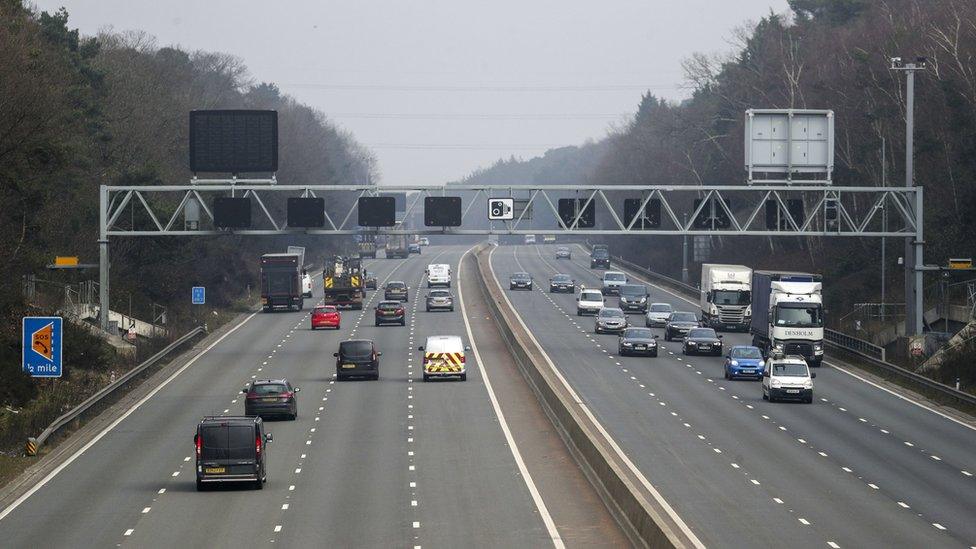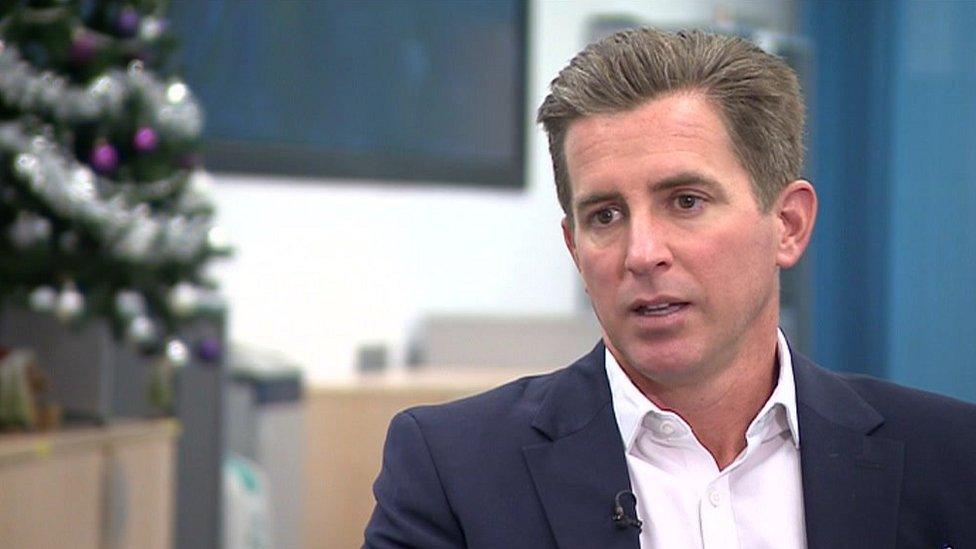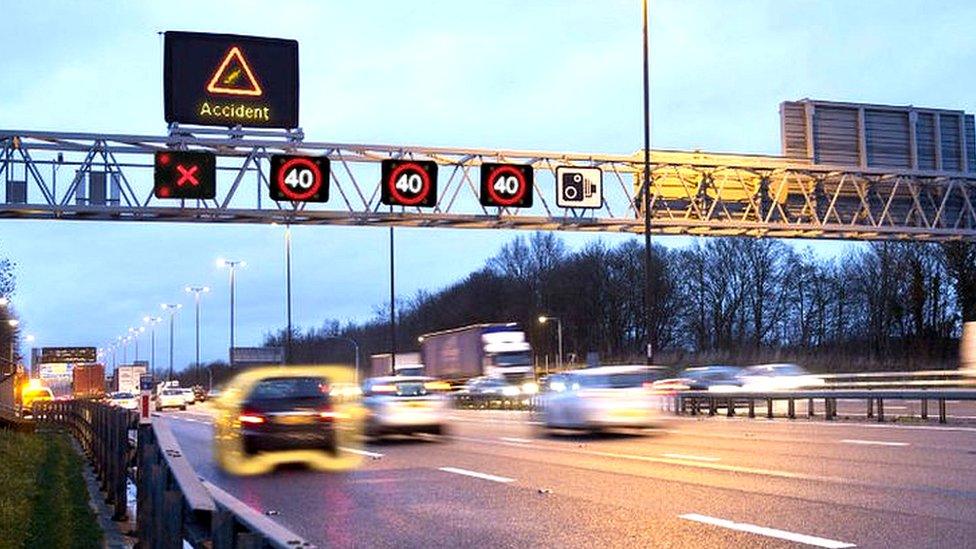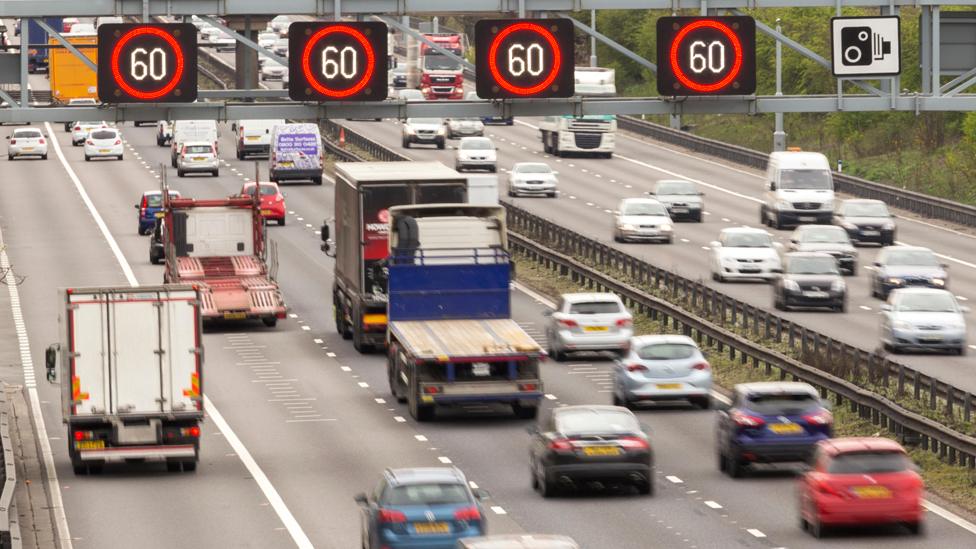Smart motorways: Four-hour technology failure 'wasn't ideal'
- Published

About 10% of motorways across the country have been converted into smart motorways
A fault which left most of England's smart motorway network without the ability to close lanes for almost four hours "wasn't an ideal situation", National Highways has said.
The software failure, which lasted between 17:45 and 21:30 GMT on 26 October, affected all routes apart from sections in the south and south east.
This put drivers who had to stop on the roads at potential risk of being hit.
National Highways' operations director defended the safety of the motorways.
At the end of 2020 there were 369 miles of smart motorways in England, including 168 miles without a hard shoulder.
The technology is designed to allow lanes to be closed using the signs upstream of incidents, such as live-lane breakdowns.
But system failures have meant the software to control the signs has not worked properly, with National Highways admitting the system also has to be switched off for essential upgrades.

National Highways operations director Duncan Smith said he personally felt "smart motorways provide a level of assurance that other roads don't"
Discussing the 26 October software problem, operations director Duncan Smith said: "During that period our ability to set red X [overhead signs] was switched off, that wasn't an ideal situation for us but one we managed through other mitigating measures like extra traffic officer patrols on the network.
"Unfortunately when we were bringing the system back up again we experienced some unexpected faults, that's why the two hours turn into more like four hours."
The controlled roads are on the M1 in Yorkshire, the East Midlands, and Hertfordshire, along with parts of the M25 in London.
There are also stretches of smart motorway in the West Midlands and North West.
Rotherham Labour MP Sarah Champion previously said motorists are "100% playing roulette with their lives every time they go on a smart motorway".
Defending the safety of smart motorways, Mr Smith said: "I think it's very difficult to ascertain the decision making of drivers when there is or isn't a hard shoulder as to what their behaviour would have been had it been there or not.
"What I feel personally is smart motorways provide a level of assurance to me as a motorist that other roads don't."
National Highways said the technology will continue to be switched off for maintenance at quiet times, with drivers not informed when this will take place.
"I'm not wanting to give the impression that we switch the system off for any other reasons than essential upgrades," Mr Smith added.
"Those are absolutely by exception rather than the norm."

Follow BBC Yorkshire on Facebook, external, Twitter, external and Instagram, external. Send your story ideas to yorkslincs.news@bbc.co.uk, external.
Related topics
- Published16 November 2022

- Published27 October 2022

- Published22 April 2024

- Published12 January 2022

- Published7 April 2021

- Published18 January 2021
